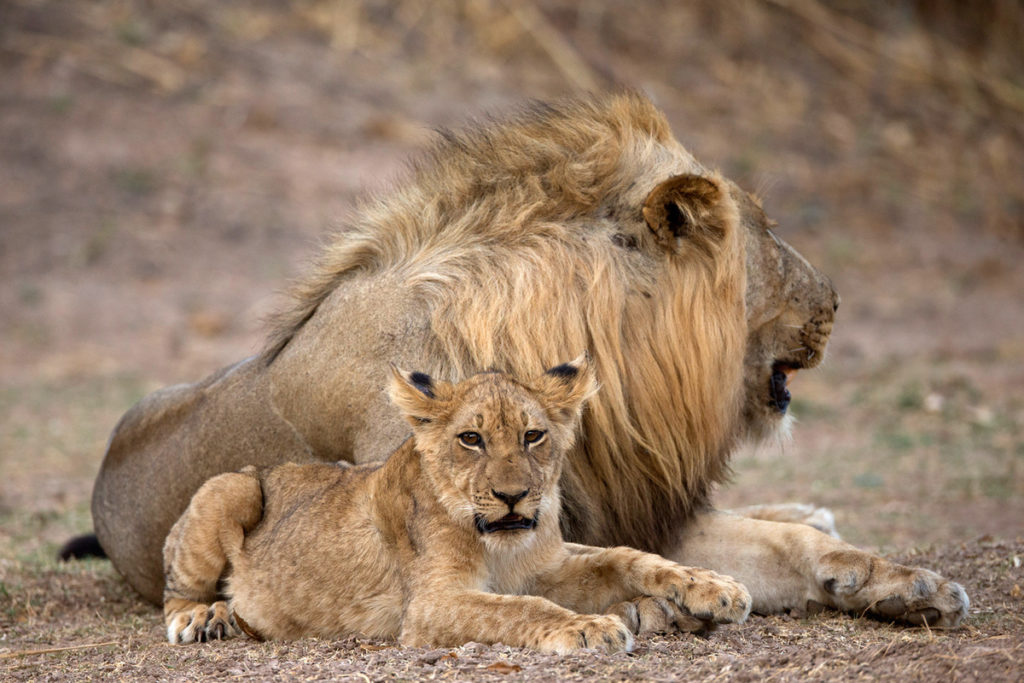Lion ‘Trophy’ Importation Ban Was Quietly Lifted by Trump Administration in October
ANIMAL RIGHTS - VEGETARIANISM, 20 Nov 2017
David Leestma | EcoWatch – TRANSCEND Media Service
17 Nov 2017 – Last month the U.S. Fish and Wildlife Service (USFSW) began issuing hunting permits for the import of lion trophies hunted in Zambia and Zimbabwe.
Although the USFSW announced Wednesday [15 Nov] it was lifting a ban on the import of elephant trophies, the new guidelines for importing sport-hunted lions have been quietly in effect and permits have been accepted since Oct. 20. Due to a 45-day waiting period, it’s unclear if any permits have been granted so far. The decision is touted as “contributing to the conservation of lions in the wild” on the USFSW website.
The U.S. government, in addition to Zambia and Zimbabwe, allows permits for wild lions and lions from managed areas in South Africa and is reviewing permits for importing lion trophies from Mozambique, Namibia and Tanzania.
The USFSW’s decision aligns with congressional Republicans’ recent history of removing endangered species protections and proposing bills that remove non-native species—such as lions—from protected status.
President Donald Trump‘s sons are also known to be avid trophy hunters. In 2012, pictures surfaced showing Eric and Donald Trump, Jr. posing with a dead elephant and leopard.
The word “trophy”—derived from the Greek word “trophos” that referenced the acquisition of nourishment, as well as “tropaion,” or body parts captured in battle—has worked its way into mainstream references to lion hunting. But its association belies its modern nature in which a person with a long-range rifle kills a lion from a safe distance.
Between 1993 and 2014, populations of African lions declined by 43 percent, according to the International Union for Conservation of Nature (IUCN). The IUCN classifies lions as “vulnerable to extinction,” one step away from endangered. Lion’s IUCN classification is propped up by a 12 percent population increase in Botswana, Namibia, South Africa and Zimbabwe. Outside of these four countries, lion populations have fallen by an average of 60 percent. In 2016, the Obama administration listed the lion as a threatened species and placed tighter restrictions on bringing back heads, paws and other body parts.
FSW officials said the decision was made after concluding that regulated hunting would help the survival of endangered species in the wild. Some conservationists dispute that claim, saying that tourism by people who want to view animals brings in far more money. The IUCN, however, contends that trophy hunting can have a potentially positive effect on lion conservation, but warns that poor regulation also contributes to population declines.
It’s unclear whether Zambia or Zimbabwe are well-positioned to effectively regulate trophy hunting. Zimbabwe is in the midst of power struggle that has seen a military takeover and the detention of its 37-year president Mugabe. Zambia, although progressing in terms of political development, continues to struggle with corruption, according to Transparency International.
_______________________________________
 David is a reporter for EcoWatch.
David is a reporter for EcoWatch.
DISCLAIMER: The statements, views and opinions expressed in pieces republished here are solely those of the authors and do not necessarily represent those of TMS. In accordance with title 17 U.S.C. section 107, this material is distributed without profit to those who have expressed a prior interest in receiving the included information for research and educational purposes. TMS has no affiliation whatsoever with the originator of this article nor is TMS endorsed or sponsored by the originator. “GO TO ORIGINAL” links are provided as a convenience to our readers and allow for verification of authenticity. However, as originating pages are often updated by their originating host sites, the versions posted may not match the versions our readers view when clicking the “GO TO ORIGINAL” links. This site contains copyrighted material the use of which has not always been specifically authorized by the copyright owner. We are making such material available in our efforts to advance understanding of environmental, political, human rights, economic, democracy, scientific, and social justice issues, etc. We believe this constitutes a ‘fair use’ of any such copyrighted material as provided for in section 107 of the US Copyright Law. In accordance with Title 17 U.S.C. Section 107, the material on this site is distributed without profit to those who have expressed a prior interest in receiving the included information for research and educational purposes. For more information go to: http://www.law.cornell.edu/uscode/17/107.shtml. If you wish to use copyrighted material from this site for purposes of your own that go beyond ‘fair use’, you must obtain permission from the copyright owner.
Read more
Click here to go to the current weekly digest or pick another article:
ANIMAL RIGHTS - VEGETARIANISM:
